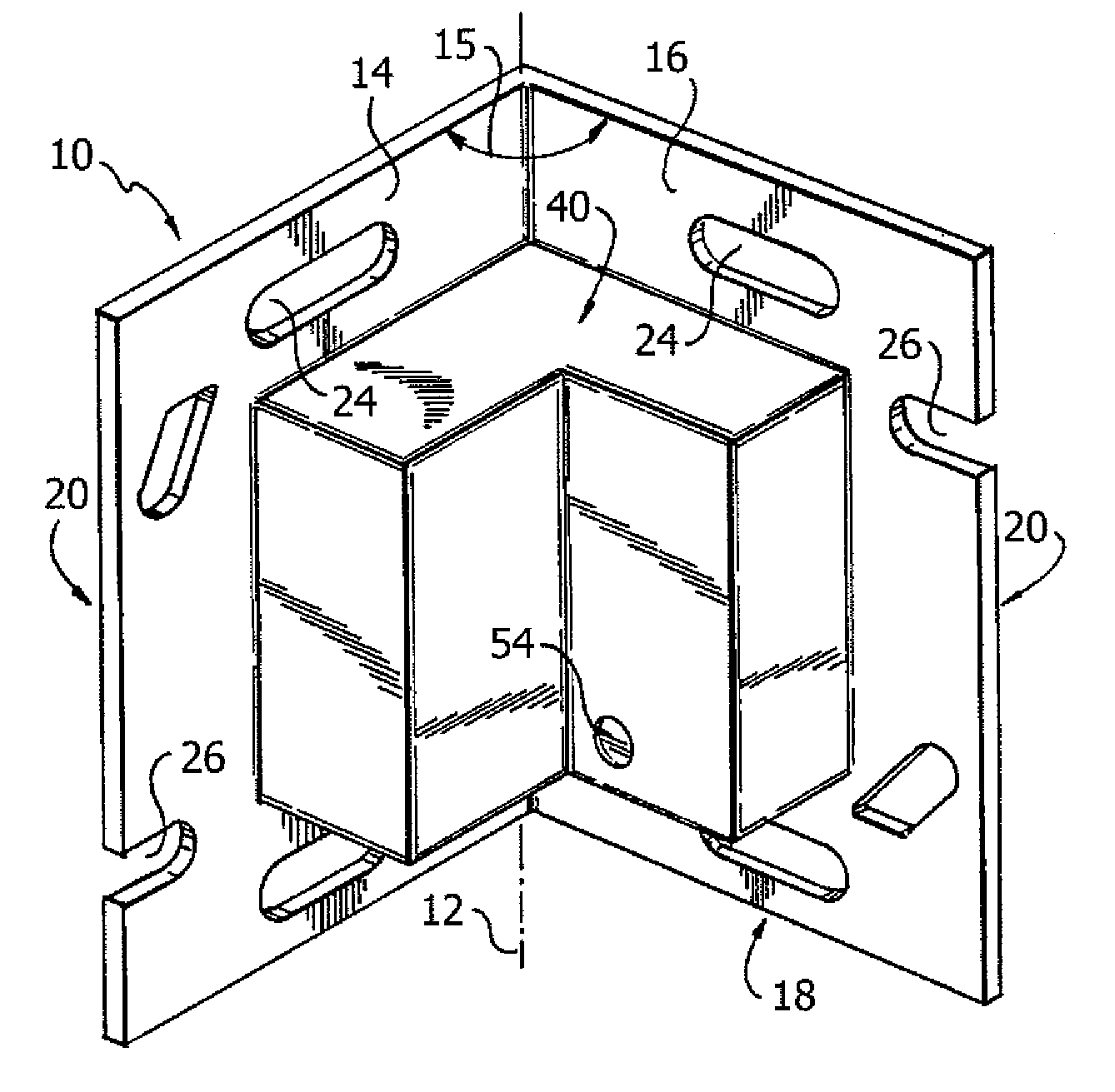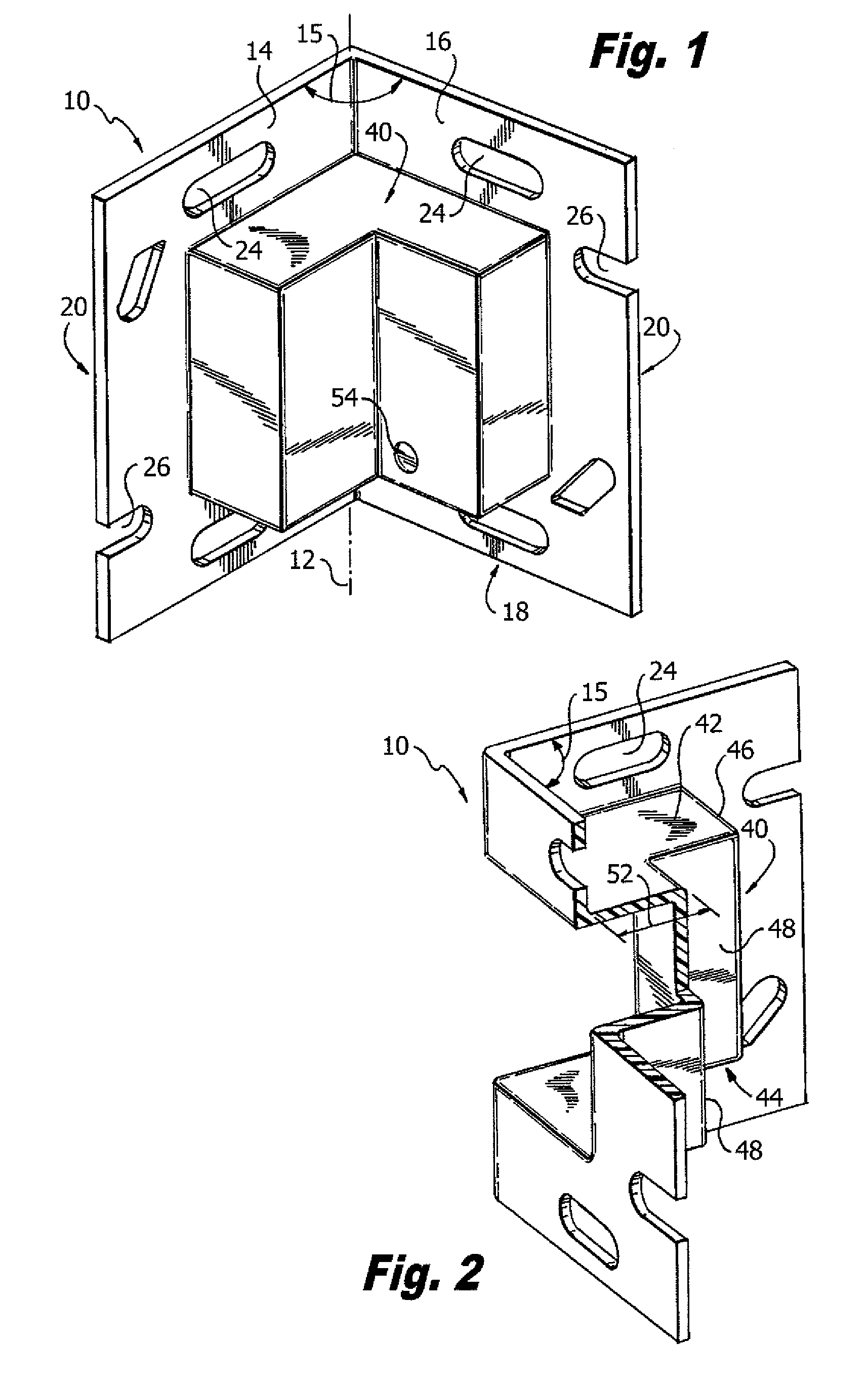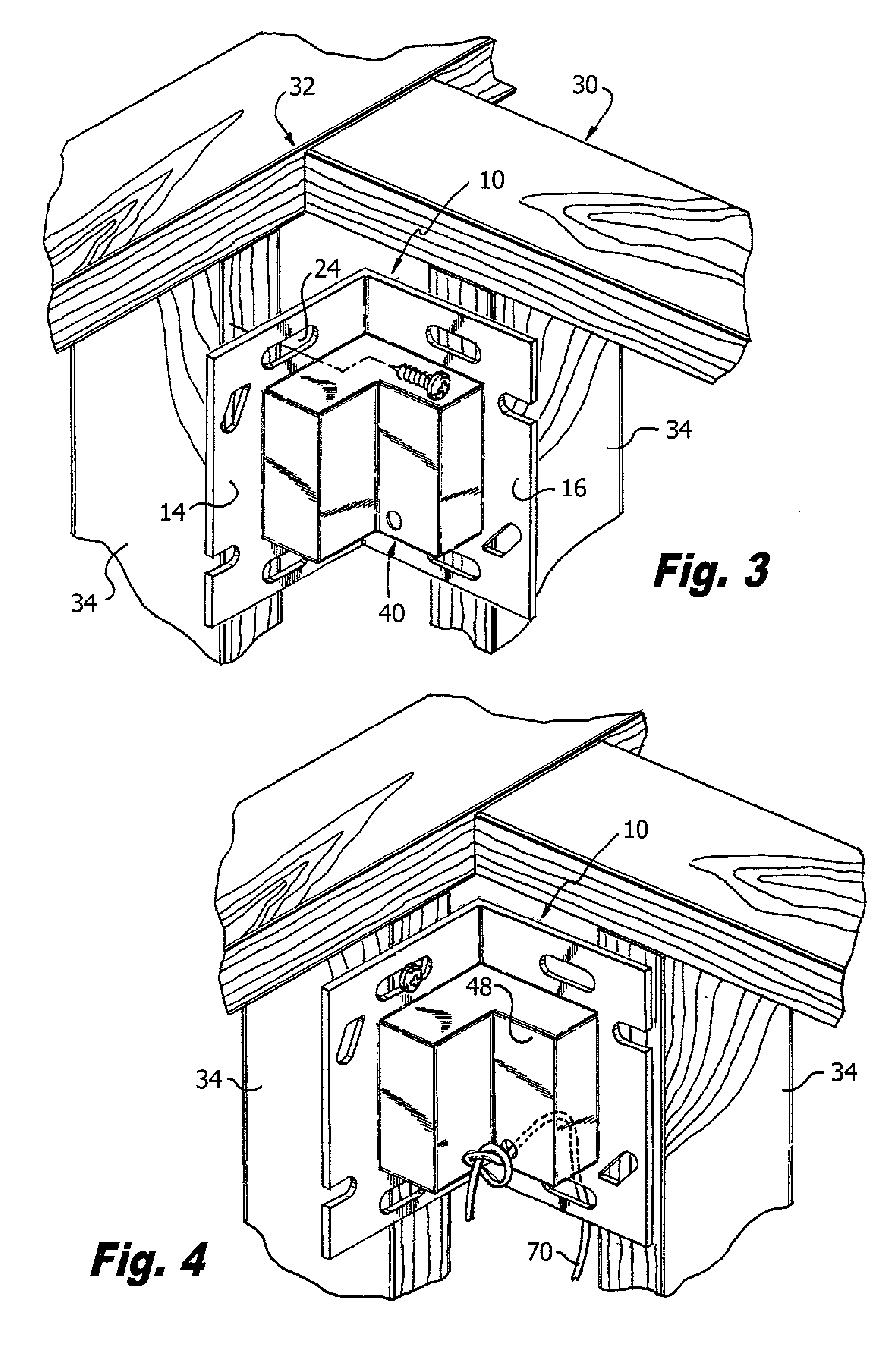[0006]In an aspect of the invention, a housing for mounting a wire and device in a corner between two walls includes an angular back plate defining top, bottom, and side edges. The back plate is mountable to a building wall frame in a corner defined by two walls, and the angular back plate is bifurcated at an acute angle. An angular raised portion protrudes from the back plate, and the angular raised portion is bifurcated at an acute angle and positioned in mating relation with the angular back plate. The raised portion has top, bottom, and side wall edges recessed from the top, bottom and side edges of the angular back plate, respectively. The raised portion has planar front portions in angular relation to each other, and the angular raised portion has a specified height such that the top, bottom and side walls are mateable with a building material affixed to the building wall frame. At least one of the planar front portions of the angular raised portion defines a section for passing a wire therethrough.
[0007]In a related aspect, the acute angle is a ninety degree angle. In another related aspect, the back plate and raised portion are bifurcated along a substantially central axis at the acute angle such that each side of the back plate and raised portion is in opposing mirror image relation to the other. Additionally, the back plate may receive fastening devices for affixing the housing to the building wall frame. Further, the back plate and the raised portion may define a region therebetween for receiving an interior building material. The specified height of the raised portion may substantially equal a thickness of the mating building material. The back plate may define notches for sliding the housing into place with mating fasteners on the building wall frame. Also, the angular raised portion is may be mateable with drywall material providing a contiguous planar surface between front portions of the raised portion of the housing and the drywall material. The back plate may include holes for mounting the back plate to the building wall frame. The section of the front portion may define a hole for receiving the wire therethrough. The front portion may include a section for affixing a device thereto for mounting the device in the corner.
[0008]In another aspect of the invention, a method for mounting a wire and device in a corner between two walls comprises: providing a housing including an angular back plate being bifurcated at an acute angle, the housing including an angular raised portion protruding from the back plate, the angular raised portion having a specified height, the angular raised portion being bifurcated at an acute angle and positioned in mating relation with the angular back plate, the raised portion having top, bottom, and side wall edges recessed from top, bottom and side edges of the angular back plate, respectively, the raised portion having planar front portions in angular relation to each other; providing a building wall frame having a corner defined by two walls; mounting the housing to the corner of the building wall frame using holes defined in the back plate; mating the top, bottom and side walls of the angular raised portion with a building material affixed to the building wall frame providing a contiguous planar surface between the planar front portions of the raised portion of the housing and the building material; and passing a wire through a hole in at least one of the planar front portions of the angular raised portion.
[0009]In a related aspect, the method further includes: affixing a device to the housing for mounting the device in the corner. The device may be affixed to at least one of the front portions of the raised portion. The method may further include connecting the device to the wire, before affixing the device to the housing. The device may be a detector for a security system.
[0010]In another aspect of the invention, a wire and device mounting system comprises a housing for hanging a wire in a corner between two walls. The housing includes an angular back plate defining top, bottom, and side edges, the back plate defines holes for mounting the back plate. The angular back plate is bifurcated at an acute angle, and an angular raised portion protrudes from the back plate. The angular raised portion is bifurcated at an acute angle and positioned in mating relation with the angular back plate. The raised portion has top, bottom, and side walls recessed from the top, bottom and side edges of the angular back plate, respectively. The raised portion has planar front portions in angular relation to each other, and the back plate is mountable to a wall frame in a corner defined by the wall frame and another wall frame using the back plate holes. The angular raised portion has a specified height such that the top, bottom and side walls are mateable with a building material affixed to the building wall frames providing a contiguous planar surface between the planar front portions of the raised portion of the housing and the building material. At least one of the planar front portions of the angular raised portion defines a hole for passing the wire therethrough. An electronic device is connectable to the wire and mountable to the housing for mounting the device in the corner. The device may be a detector in a security system.
 Login to View More
Login to View More 


